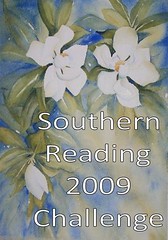
Millions by Frank Cottrell Boyce
3.5 stars
Reasons for reading: have been meaning to; 2004 Carnegie Medal winner for Book Awards Challenge
Description: "Two bothers, Damian and Anthony, are unwittingly caught up in a train robbery during Britain's countdown to join the Euro. Suddenly finding themselves with a vast amount of cash, the boys have just one glorious, appalling dilemma how to spend it in the few days before it becomes worthless. Torn between the vices of buying a million pizzas and the virtues of ending world poverty, the boys soon discover that being rich is a mug's game. For not only is the clock ticking the bungling bank robbers are closing in. Pizzas or World Peace, what would you choose?"
First line: "If our Anthony was telling this story, he'd start with the money."
My thoughts: What a very different book! It has one of the strongest, sweetest, oddest narrative voices I've come across in a long time, in either adult or children's fiction. Damian is a very strange, smart, different, loving boy - he's obsessed with saints to the point that he's visited by them and tries to emulate their lives and he always tries to be very good because he's worried that his father will leave if he's not (after his mother died, people told him to be good for his father and this planted a terrible seed of abandonment in him). His older brother Anthony seems to be a much more practical boy - his obsession is real estate and commerce in general.
The general message of the book is pretty obvious - money can't buy happiness and can actually cause misery. As the boys try to spend the money but keep it a secret from their dad, they basically devalue the pound on their school playground as they give away cash for favours and possessions. They can't enjoy the stuff they buy, because they have to hide it. And, of course, all kinds of people come out of the woodwork looking for it, including the man who originally stole it. Damian also has to learn the hard lesson that you can't help everyone, no matter how much money you have and how hard you try..
The story of the 3-man family trying to put itself back together while grieving, Damian's visions and strange behaviour, and the brothers' relationship fleshes out the story well beyond the initial message. The saints' visits often help Damian, though he doesn't always understand their cryptic messages. An appearance by St. Joseph at the nativity play is a highlight. Through Damian's eyes, we see every new dilemma in a naive, hopeful, and clever-in-his-own-way light.
I think I'd like to see the movie based on the book, directed by Danny Boyle. I hope they got a great kid to play Damian.
The only thing that I can't quite get past is that I can't figure out if the central plot point - that the British government burned hundreds of thousands of pounds - is in any way true. As far as I can tell, the pound is still very much legal tender and I can't find anything online that would indicate it actually happened. Still, even if that part's fictional, it makes for a great what-if story.
















